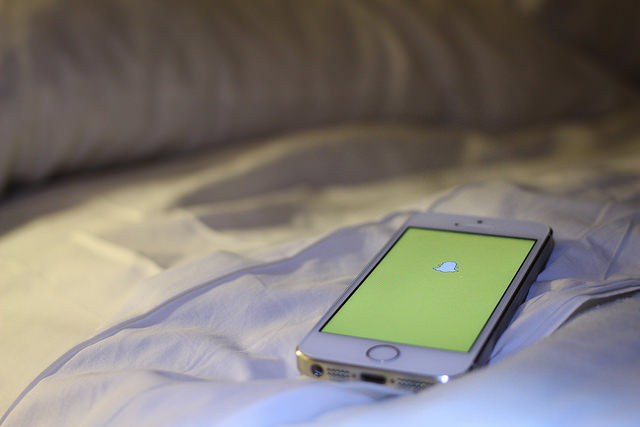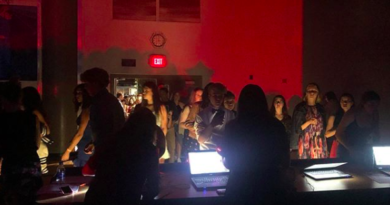Students ditch social media to improve mental health
PHOTO: Senior Susannah Costello sometimes deletes Snapchat for a mental health break. (Courtesy: Maurizio Pesce)
By Anisha Dhakal,
BlueDevilHUB.com Editor–
A recent survey done by the American Academy of Children & Adolescent Psychiatry showed that 90 percent of teens ages 13-17 use some form of social media, with screen times averaging nine hours a day discluding usage for school assignments.
During lockdown, social media is one of the only ways in which teens can interact with their peers. Many, however, have noticed detrimental effects to their mental health, subsequently leading them to delete the applications.
Senior Susannah Costello has struggled to manage her phone usage.
“I spent hours and hours mindlessly scrolling through Snapchat specifically… I eventually realized it was such a waste of time, so I deleted it for a few weeks. It was harder in the beginning, but it got easier over time,” Costello said.
Costello frequently deletes apps like Snapchat and Instagram when they begin to take over her daily life.
“I mostly just redownload it when I feel super left out of things because so much interaction happens over social media, but it’s also just out of boredom,” Costello said.
In order to combat this boredom while still abstaining from an overuse of social media, students like Costello and have taken up other activities instead of spending more time on their phone.
“Recently, I started crocheting, which has been therapeutic and gets my mind off of things. I’ve also just spent more time actually talking to people by FaceTiming them or going on a socially distanced walk,” Costello said.
Similarly, senior Haydent Tam spends time staying active with his brother and his dog, Raleigh.
“I’ve noticed deleting the apps has helped with my mental health which is why I’ve decided it’s best for me to stay off of it for a bit,” he said.
Unfortunately, too much time on social media can have negative side effects for teens. Increased depressive and anxious symptoms have been found to heighten with a daily three-hour use of social media, according to Mayo Clinic.
Brain scans of reactions of individuals with increased social media usage were similar to the reactions of drug-dependent brains. The dopamine increase is due to the instant reward that one is provided by taking a look at the number of likes, comments, etc.
Senior Griffin Szymoniak recognized how harmful these mental health consequences could be and decided that it was time for a break.
“I was way too absorbed in it and it’s a huge waste of time, so I decided to delete [Instagram] and it’s been two months or so and I’ve felt a lot better than I did in the past,” Syzmoniak said. “I think people should try deleting the app and maybe using it just once in a while so you don’t feel like you’re missing out, but don’t spend too much time on it when you do.”
Moderation is critical to reduce the various psychological effects that come with the use of social media. Whether it may be taking breaks or other ways of limitation, minimizing one’s intake is crucial.




